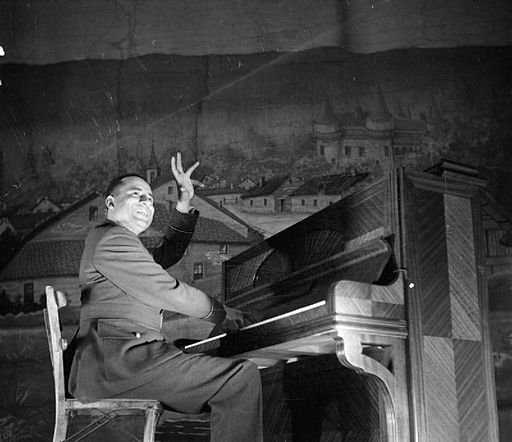Reginald Foresythe was born on 28 May, 1907 to Charles Albert Foresythe, a barrister, and his English wife, Charlotte Annie (nee Falk) at their home in Shepherd’s Bush (West London) at Hetley Road. Reginald’s mother was of German descent, but his father, Charles Albert Foresythe, a newly qualified barrister (1906) was the descendant of a prominent Saro (the term for Sierra Leoneans in Nigeria) family.
The Foresythe family was originally a Sierra Leonean family that could trace its roots back to Charles Foresythe (the first). This Charles Forestyhe was a Sierra Leonean born on Tasso Island to an African mother and European father who was an Army officer. Foresythe settled in Lagos during the mid to late nineteenth century and was appointed the first Postmaster of that city in 1862. Foresythe also became a lawyer and was one of the first local attorneys in Lagos. He contributed toward the Anglican Church and was one of the early ardent nationalists who strongly supported the Native Pastorate Church.
This Charles Foresythe married a daughter of T.W. Hughes of Little East Street (now Malamah-Thomas Street), Freetown, Sierra Leone and it was from this union that Charles Albert Foresythe, the Nigerian born father of Reginald Foresythe, traced his roots.
Reginald Foresythe received a public school education and maintained an upper-class British accent throughout his life. He began learning to play the piano at the age of 8 and demonstrated a talent for music. It would result in Foresythe becoming a respected jazz artist in the British jazz scene and respected by his peers in the United States. Foresythe spent time in the United States (mainly Chicago and New York) and he interacted with some of the greatest jazz legend in history.
Jazz legends such as Louis Armstrong respected Foresythe and recorded some of his compositions. Earl Hines, the renowned Jazz artist, used Foresythe’s composition, “Deep Forest” as the main tune on his radio station in the United States. Foresythe also composed music for the Cotton Club Parade that had been headlined by artists such as Duke Ellington.
After returning to Britain, Foresythe was drafted into the Royal Air Force and served as an intelligence officer in North Africa. Although Foresythe continued to play in clubs and hotels across London, he never regained the popularity he one held and it is for this reason that he has been largely forgotten by jazz musicians and Black Britons.
Foresythe died on December 28, 1958 after heart failure resulting from a fall. Foresythe remains respected by scholars of jazz music and some believe that if Foresysthe had remained in the United States, he would have achieved greater recognition for his achievements.
